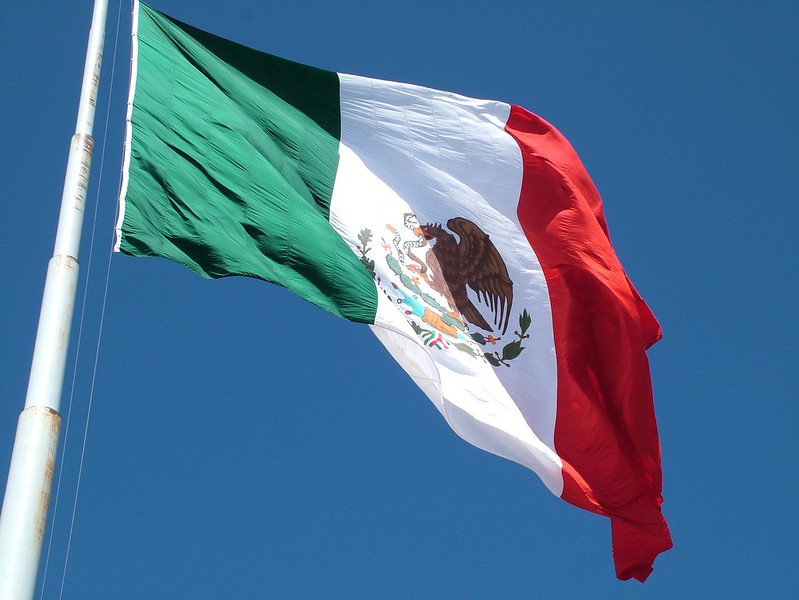While other countries are already lifting quarantine, the Mexican administration led by Andrés Manuel López Obrador has revealed its plan for the re-opening of public activity around the country. While the road to re-opening the country is slow, and the reactivation of the so called “municipalities of hope” is expected as early as 18th May, the process will be long. One of the indicators is the official announcement that the school cycle and all activities related to it will wrap up online for the well-being of teachers and students, despite a previous extension.
However, not all news is positive, for the Mexican government has not escaped criticism. From being called out by local doctors at public health clinics for a lack of supplies, to the controversial buying of million-dollar ventilator equipment for medical facilities to the son of a senior public official, to accusatory comments made by the president himself referring to doctors and nurses as “opportunistic mercantilists” who should be attending their patients free of charge, despite the health risks and the reality that they are underpaid and under-equipped.
Despite the above, the Mexican population’s way of dealing with crises is, as usual, humorous. Memes are published on-line after almost every single “mañanera” or daily update on the country’s coronavirus status, including, but not limited to, Hugo López-Gatell’s comments and reactions to reporters’ questions, as well as funny or humorous happenings in the altered daily life of citizens. It is quite telling that the government has even embraced this humour, as evidenced by the existence of a National Public Health Institute Tiktok, where through the short and concise format of the platform they are targeting a younger audience through funny videos and music.
The list of inherently Mexican reactions is long. However the most viral ones, the ones that travelled the internet at breath-taking speed, are the ones listed here. Pictures and videos of nail salons in Culiacán, Sinaloa, operating spread like wildfire in the early days of quarantine. In them, the entire staff and all their clients were cladded in white, disposable hazmat suits, as well as surgical face-masks and, funnily enough, latex gloves with holes on each finger, allowing the nail artists to work on their clients’ nail art without “risking” their safety.
As part of lockdown measures, non-essential industries were to stop operating to avoid contagion. Among those industries was one that is deemed essential around the world, and with Mexico as its largest exporter, the panic upon the suspension of activities in the factories that produced it was great. I am, of course, talking about beer. As a result of the official announcement, the threat of a national shortage of beer meant that supermarkets were crowded, with social distancing a far-away concept and barely a second thought spared for it in the minds of Mexicans unwilling to face quarantine without their drink of choice. Sure enough, there were some who chose to order their drinks through delivery services, avoiding risk for themselves while endangering their delivery provider. As of May 14th, candles have started piling up outside the Heineken Factory in Monterrey, Nuevo León, in hopes that prayers will help the industry start production again soon.
Not long after that, Children’s Day came around, and an unprecedented number of people queued outside bakeries and pizzerias, with social distancing nowhere to be found. A similar phenomenon as with beer occurred, with the concept of quarantine being sent to the back-burner in favour of cake and celebration. Following these events, entire states issued orders for bakeries to close on Mother’s Day, to avoid the repetition of a similar phenomenon. They instead insisted the population pre-order their cakes, or insisted on the use of delivery services to avoid the creation of long queues.
Despite the humour involved, and the goodwill of most due to Mother’s Day just passing, the truth is that confinement in Mexico has, as in almost any other country in the world, increased the number of calls to domestic violence aid centers. With the constant confinement, the possibility that women are now working even more with the addition of home office work to regular housekeeping activities imply that women are more likely to be overworked during this period, as well. With it, and the stress of being inside as well as the unstable economy that means thousands of workers are left without their jobs only means that frustrations and tensions are piling up inside households, amplifying the threat of domestic violence in an already dangerous country for women. Even in confinement, women are not safe.
With the impending re-opening of non-essential industries, all that we can do is wait and see whether there will be changes in the way we all interact with each other, and whether things will just go back to normal, or be forever changed.
Image credit: World’s Direction

